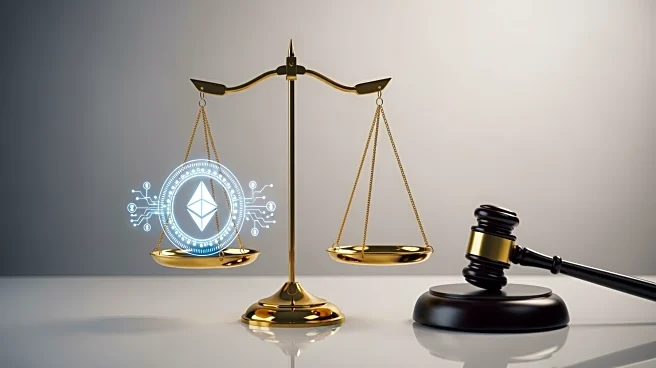What's Happening?
President Donald Trump has granted a pardon to Changpeng Zhao, the founder of Binance, the world's largest cryptocurrency exchange. Zhao, known as CZ, had previously pleaded guilty to violating anti-money-laundering
laws and U.S. sanctions, resulting in a $4.3 billion penalty for Binance. The pardon, announced by White House Press Secretary Karoline Leavitt, is part of Trump's broader strategy to support the cryptocurrency industry, which he claims was unfairly targeted by the previous administration. Zhao's pardon follows a series of similar actions by Trump, including pardons for other crypto industry figures.
Why It's Important?
The pardon of Changpeng Zhao is significant as it signals a shift in U.S. policy towards the cryptocurrency industry under President Trump. By pardoning Zhao, Trump is reinforcing his administration's pro-crypto stance, potentially encouraging further investment and growth in the sector. This move could benefit Binance by allowing it to re-enter the U.S. market, which it had exited due to legal constraints. However, the decision has sparked criticism from some political figures, who argue that it reflects a conflict of interest given Trump's personal investments in the crypto industry.
What's Next?
Following the pardon, Binance may seek to re-establish its presence in the U.S. market, potentially expanding its operations and influence. The decision could also lead to increased scrutiny and debate over the ethical implications of presidential pardons, especially those involving financial interests. Stakeholders in the crypto industry may view this as an opportunity to push for more favorable regulations and policies under the current administration.
Beyond the Headlines
The pardon raises questions about the intersection of politics and business, particularly in emerging industries like cryptocurrency. It highlights the potential for political influence to shape market dynamics and regulatory environments. The move may also prompt discussions about the transparency and accountability of presidential pardons, especially when they involve high-profile business figures.









